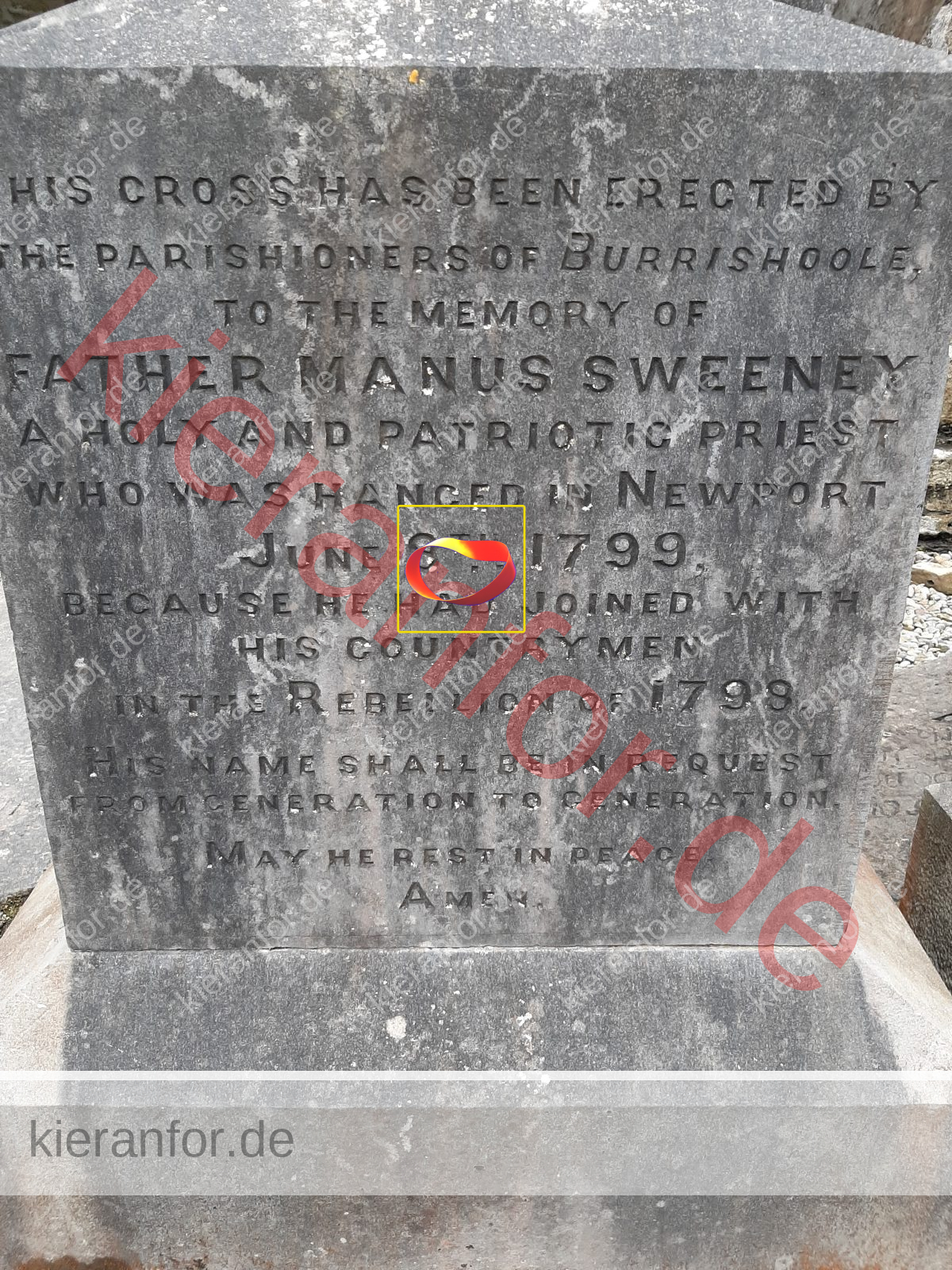Header image: Tomb of Fr Manus Sweeney, Burrishoole Abbey, Co Mayo
Waters, J. (1997). An intelligent person’s guide to modern Ireland. Duckworth,
Drinking in Ireland is not simply a convivial pastime, it is a ritualistic alternative to real life, a spiritual placebo, a fumble for eternity, a longing for heaven, a thirst for return to the embrace of the Almighty
[p. 159]
- [9] Ireland as “Europe’s economic failure of the twentieth century”
- [19] Holub “our ego lasts three seconds. Everything else is either hope of [sic] an embarrassing incident. Usually both”
- [20-21] “Modern Ireland”
- [26] colonialism at its core is a psychological process of which the cutting edge is the creation of national shame”
∞
- Chapter 4: Natives and Native Settlers
- [36] Becoming racist against themselves
- [36] Ireland is not, of course, a black society; but it is a colonized society; in which conditions resemble those in a colonized black society but in a more complex and less obvious way.
- Dev’s speech: Mar 17, 1943: “comely maidens”
- Happy maidens
- [42] by virtue of being unstated., it would have been less easy to attack. By naming it, Dev sentenced it to death.
- [46] the culture of the land which, because it enshrined values of sharing, community, continuity, and respect for the natural world, stood between Ireland and modernization
- [48] it is a symptom of all post-colonial societies that they lack the capacity for personal enterprise which is so essential if reconstruction is to be carried out from within
The Bishop and the Nightie 1966
https://www.rte.ie/archives/exhibitions/2112-gay-byrne/634072-honeymoon-nightie-quiz/
- [63] But in Ireland, although there are Catholics, lapsed Catholics, non-Catholics and anti-Catholics, there is no such thing as an ex-Catholic
- [65] In the absence of the opportunity to possess economic and political power, identity and social prestige became centered on the practice and expression of moral virtue
∞
ASK: the reading out of the takings of collections from the older
∞
- [71] for all its imperfections, Irish Catholicism allowed us to live within sight of the Other
- [71] The joyless comma authoritarian nature of ‘traditional’ Irish Catholicism developed in Irish people and acute allergy to religion
it is not sufficient to say that Irish people have turned away from God. They have turned away from a church which seems to be holding God to ransom. We do not reject God because we have rejected the church. We reject God because we have too closely identified him with an institution which we perceived as having behaved in the most unGodlike manner [73]
It is better that some innocent men remain in jail than that the integrity of the English judicial system be impugned
“Lord / Baron” Alfred Thompson Denning
(2016, March 14) ‘It’s not the system that’s wrong. It’s the bastards on the bench’
https://www.thejusticegap.com/paddy-hill-its-not-the-system-thats-wrong-its-the-bastards-on-the-bench/
- [78] There is no doubt that the mechanism it created did function reasonably well as the central conscience of Irish society. Only now that is beginning to disintegrate do we get a sense of what it might mean to live without such a common conscience
∞
Fanon (1961) The wretched of the earth
∞
- [159] contd. People drink more because they like living less than they think they ought to, and the more overwhelming the evidence of the irrefutable ability of life’s attractiveness grates with their own experience, the more than nagging unhappiness makes alcohol the only way of filling in that shortfall, which is in essence an absence of beliefs.
- [160] We use alcohol as a means of escape and relief, to remove ourselves from the pain of reality, and to temporarily numb that pain within ourselves
∞
Alcohol, for the Irish, is the immigration of the soul. The pint in the hand is a ticket to the world of the imagination, to poetry and magic and a song. It is a license to be what we really are, without shame or inhibition. The use of alcohol in this way is something we share with other traumatized peoples, like the Australian Aborigines and the North American Indians, a symptom of societal dissociation, which prevents us from living contented lives without chemical assistance [161]


